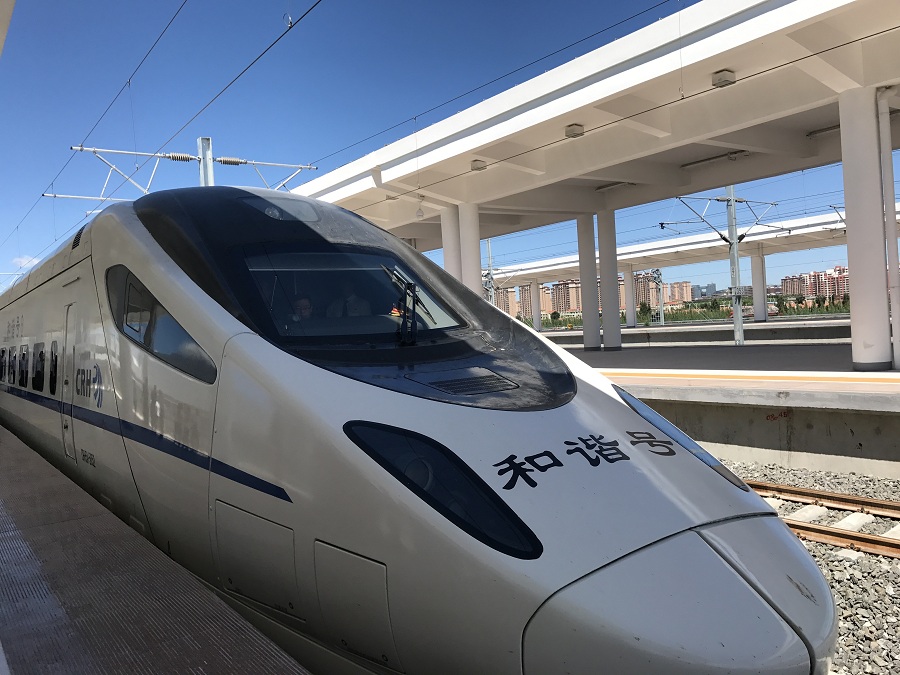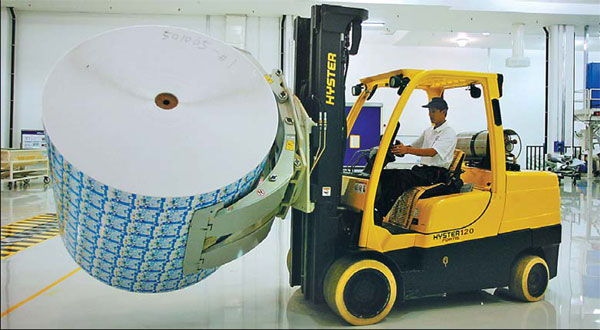Multinationals face increased scrutiny
By Wang Zhuoqiong and Liu Jie (China Daily)
Updated: 2013-07-06
|
Tetra Pak Hohhot Co Ltd's packaging plant in Hohhot, the Inner Mongolia autonomous region. China's market regulator is investigating Tetra Pak Group for alleged abuses of its dominant market position. Zheng Huansong / Xinhua |
Probes into food, dairy and drug industries may signal new era
China is expanding its investigations into the food, dairy and pharmaceutical industries, raising questions about whether the days of "supranational treatment" for multinationals have ended.
The investigations signal that these companies face increased scrutiny of their operations in the country.
The State Administration for Industry & Commerce is investigating the food processing and packaging company Tetra Pak International SA for possible abuse of market dominance.
The SAIC has organized more than 20 of its regional agencies to investigate the allegations, Zhang Mao, head of the market regulator, said on Friday. It is also investigating 23 cases of possible monopoly violations.
Tetra Pak China said in a statement that it has received requests from the SAIC and will provide relevant information about its operations in China to fully cooperate with the government's investigation.
Earlier, the National Development and Reform Commission, the top economic planning agency, started an investigation into the pricing of infant formula sold by Switzerland-based Nestle's Wyeth and other foreign companies, including Mead Johnson Nutrition Co, Abbott Laboratories and Dutch producer Royal FrieslandCampina NV.
Nestle SA and Danone's infant-nutrition units cut some prices after the government started looking into possible price-fixing by global producers of infant formula.
Domestic company Biostime International Holdings Ltd, whose net profit rose 40 percent year-on-year in 2012, is also being investigated.
The NDRC has evidence showing that the companies' prices have increased about 30 percent since 2008.
The world's largest dairy exporter, Fonterra Cooperative Group Ltd in New Zealand, was contacted on a "broad-ranging investigation of consumer dairy products in China", and it is cooperating with the authorities, the Auckland-based company said.
Wyeth said this week it would lower the prices of some baby-formula products by as much as 20 percent.
It said the reductions will save consumers an estimated 450 million yuan ($73 million) in the next 12 months.
Danone said its Dumex unit is preparing a price cut, and it will disclose details later.
Some industry insiders said investigations might exert temporary limits on milk powder prices, but Chinese parents' demand for foreign brands would drive prices back up again.
Wang Dingmian, an executive council member of the Dairy Association of China, said entrenched preferences for foreign brands would not easily change.
As for domestic milk powder brands, the government's actions would also have a limited impact if the problems involving product quality, milk sources and trust issues were not resolved, he said.
Chinese consumers' loyalty to foreign brands is thought to be pushing up their prices over the long run.
Guo Yuanyuan, the mother of a 2-year-old, buys high-end milk powder produced by Wyeth regularly. Each can costs about 400 yuan.
"When I encounter piles of imported milk powder at the supermarket, the price is the only factor that matters to me," Guo said. "I believe the more expensive the product, the better the quality and thus the safety for children."
The government is also examining the costs and prices of international pharmaceutical companies, including GlaxoSmithKline Plc, Merck & Co, Novartis AG and Baxter International Inc, with the aim of improving the pricing system for medicines.
According to an e-mail response from MSD China, a unit of international drugmaker Merck & Co, said the NDRC announced cost and price surveys on July 2.
MSD said it is a routine cost and price data collection spanning the entire healthcare industry, including local and multinational pharmaceutical manufacturers.
The company said such surveys are carried out on a random basis.
For example, this month, 27 drug companies, including Boehringer Ingelheim GmbH, Astellas Pharma Inc, GSK, Baxter and MSD, have been chosen for the survey, together with large domestic pharmaceutical and medical device companies.
Wang Zhile, president of the Beijing New Century Academy on Transnational Corporations and a senior researcher on foreign direct investment, said that an anti-monopoly investigation is necessary to build up a healthier market.
He said the move encourages all companies - local or foreign - to play by the rules.
He said it is vital for the government to adopt proper and internationally recognized methods in investigations to yield a fair result.
Bloomberg News contributed to this story.
Contact the writers at wangzhuoqiong@chinadaily.com.cn and liujie@chinadaily.com.cn
(China Daily 07/06/2013 page9)

High-speed train debuts in Inner Mongolia
A bullet train departed Hohhot East Railway Station for Ulanqab marking the start of high-speed rail services using Inner Mongolia’s first newly-laid high-speed railway on Aug 3.

